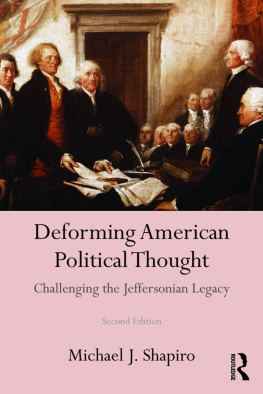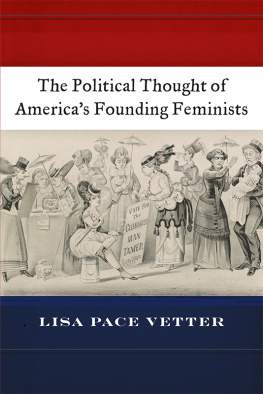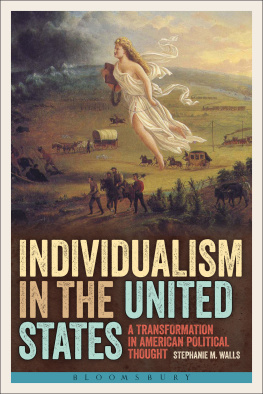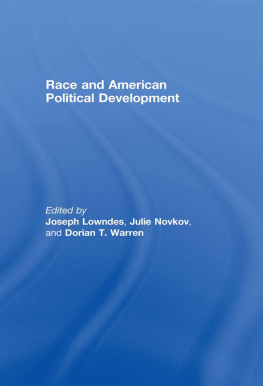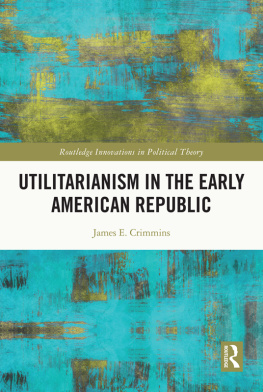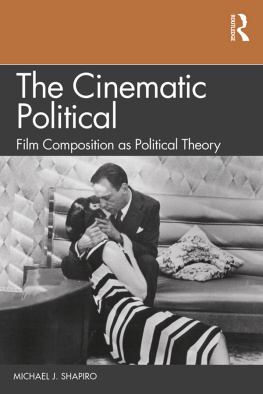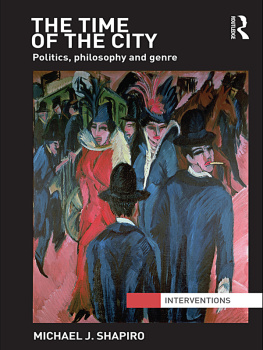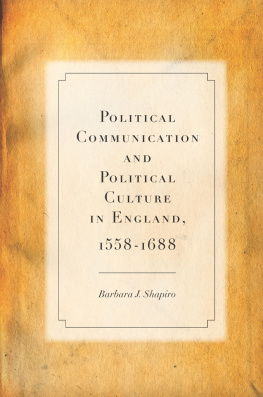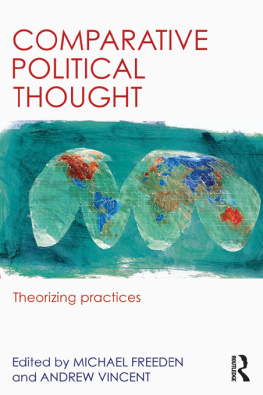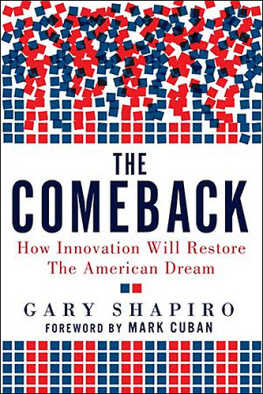Michael Shapiros Deforming American Political Thought is committed to the trans-formations that concepts, practices, and media bring to those reflective sensibilities neglected by our current sciences of politics. Contrapunctal in both style and rhythm, Shapiro shows us that politics has no specific medium. By bringing to light diverse figures, objects, and voices heretofore silenced in our descriptions of American political theory, he puts to work a transversality of material cultures that partition our genres of thinking. This is interdisciplinary political theorizing at its finest.
Davide Panagia, UCLA, USA
Michael J. Shapiros Deforming American Political Thought is a masterpiece. Shapiro deploys various genres of art, various disciplines of thought and science, to reveal an America that has always been there, just beyond the ken of conventional political theory. His is a counter-history of American conventions of the political, one that shows how cultures of resistance and creative arts nurtured by minority voices find their way to the surface of our lives. He offers an alternative under-standing of the American demos that challenges the conceits of the bullies of American exceptionalism, from Jefferson to the present, whether they be found in the corridors of power or corridors of colleges and universities. This isnt so much a book to be reckoned with as it is itself a reckoning.
Thomas Dumm, Amherst College, USA
Deforming American Political Thought
Deforming American Political Thought offers an alternative to the dominant Amer-ican historical imagination, treating issues that range from the nature of Thomas Jeffersons vision of an egalitarian nation to the persistence of racial inequality. Presenting multifaceted arguments that transcend the myopic scope of traditional political discourses, Michael J. Shapiro summons disparate disciplines and genres architecture, crime stories, novels, films, and jazz/blues music (among others) to provide approaches to the comprehension of diverse facets of American political thought from the founding to the present. The books various investigations dis-close that there have always been dissenting voices, articulated in diverse genres of expression, that cast doubt on the moral purpose and exceptionalism of the American mind.
This highly anticipated updated second edition features a preface focusing on aesthetic theory and the contributions of artistic genres for political analysis, and a completely new chapter on critical thinking about the US western and urban encounters afforded by the two HBO series, Deadwood and The Wire, respectively.
Michael J. Shapiro is Professor of Political Science at the University of Hawaii at Ma-noa. His research and teaching interests are in the areas of political theory and philosophy, critical social theory, global politics, politics of media, politics of aesthetics, politics of culture, and indigenous politics.
DEFORMING AMERICAN POLITICAL THOUGHT
Challenging the Jeffersonian legacy
Second edition
Michael J. Shapiro
Second edition published 2016
by Routledge
711 Third Avenue, New York, NY 10017
and by Routledge
2 Park Square, Milton Park, Abingdon, Oxon OX14 4RN
Routledge is an imprint of the Taylor & Francis Group, an informa business
2016 Taylor & Francis
The right of Michael J. Shapiro to be identified as author of this work has been asserted by him in accordance with sections 77 and 78 of the Copyright, Designs and Patents Act 1988.
All rights reserved. No part of this book may be reprinted or reproduced or utilised in any form or by any electronic, mechanical, or other means, now known or hereafter invented, including photocopying and recording, or in any information storage or retrieval system, without permission in writing from the publishers.
Trademark notice: Product or corporate names may be trademarks or registered trademarks, and are used only for identification and explanation without intent to infringe.
Library of Congress Cataloging in Publication Data
A catalog record for this book has been requested
ISBN: 978-1-138-18270-7 (hbk)
ISBN: 978-1-138-18271-4 (pbk)
ISBN: 978-1-315-64625-1 (ebk)
I am grateful to Steve Wrinn and his staff at the University Press of Kentucky for their outstanding production of the first edition of this book and for facilitating the reversion of the rights to Routledge for the second edition. I want to thank my editor, Natalja Mortensen, for welcoming this second edition and facilitating its acquisition and Lillian Rand for managing the production process. And I want to especially thank my colleague and friend Chuck Lawrence, whose astute reading of parts of the first edition helped me understand what I have been thinking/writing about.
Many of the ideas incorporated in the investigations in this book were developed during pedagogical plans and their implementation. For several years I have taught a scope and methods course for beginning political science graduate students. Most courses under this rubric were invented during the 1960s, when departments of government became departments of political science, a shift reflecting a new preoccupation with method, as a formerly historical and descriptive discipline was being transformed into a social science. The social scientization of a politics discipline is an ambiguous achievement., testifies to radical difference between his and mainstream political science perspectives on political theory. Observing that disciplinary contention among others, it has been clear to me that there is no unambiguous way to represent political science as a consensual discipline, in terms of either scope or method. Political science, as deployed in American academia, is recalcitrant to a representation as what Thomas Kuhn famously called a paradigm.
As a result, I have encouraged students to explore borrowing Arjun Appadurais term the changing ideoscape of political science, as it is reflected in among other places the historical trajectory of presidential addresses at annual meetings of the American Political Science Association (APSA), since its founding in 1903., my version of that project is very different from hers. Rather than attempting to redeem the scientific credentials of Euro American founders, I redeem other voices.
A second major focus of my analysis stems from my teaching of the aesthetics-politics relationship. After exposing students to Immanuel Kants Critique of Judgment and treating its implications for approaching facticity, not as something the world simply confers but as what emerges from the way subjects actively apprehend worlds, I go on to emphasize the ways in which Kants contribution to turning what is sensible into what is knowable is inflected in the thinking of such post-Kantians as Walter Benjamin, Gilles Deleuze, Michel Foucault, Jean-Francois Lyotard, and Jacques Rancire. I then encourage students to apply a post-Kantian appreciation of the permeable boundary between epistemological and aesthetic modes of analysis and judgment to the politics of literary, visual and aural texts.
As my own investigations of diverse genres took shape in course preparation, in the classroom, and in my writing I became especially engaged by critical interpretive approaches, edified by concepts of deformation and partitioning. With respect to the former, I implement, while shifting genres, Gilles Deleuzes analysis of the way the painter Francis Bacon deforms the psychic clichs and figurative givens in the history of painting, and Houston A. Baker, Jrs analysis of the way W.E.B. Du Boiss writing effects a deformation of mastery to challenge aspects of the textuality of white dominance.5 With respect to the latter, I am instructed by Jacques Rancires conception of the politics of aesthetics, where aesthetics is understood to involve the partitioning of the sensible. Noting Platos well-known statement that artisans have no time to do anything but their work, Rancire states:

